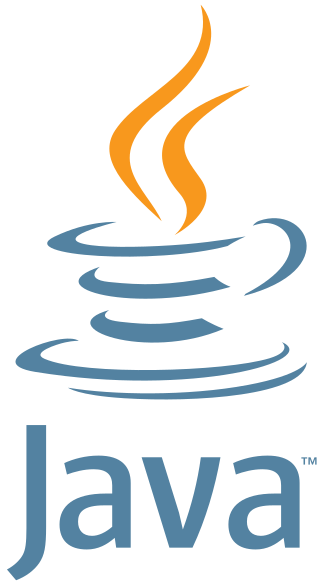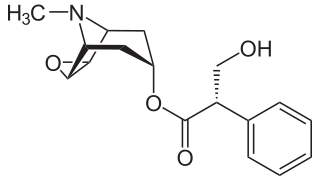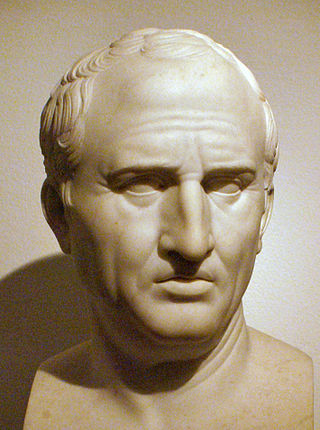
A central processing unit (CPU), also called a central processor, main processor, or just processor, is the most important processor in a given computer. Its electronic circuitry executes instructions of a computer program, such as arithmetic, logic, controlling, and input/output (I/O) operations. This role contrasts with that of external components, such as main memory and I/O circuitry, and specialized coprocessors such as graphics processing units (GPUs).

Computer data storage or digital data storage is a technology consisting of computer components and recording media that are used to retain digital data. It is a core function and fundamental component of computers.

Java is a high-level, class-based, object-oriented programming language that is designed to have as few implementation dependencies as possible. It is a general-purpose programming language intended to let programmers write once, run anywhere (WORA), meaning that compiled Java code can run on all platforms that support Java without the need to recompile. Java applications are typically compiled to bytecode that can run on any Java virtual machine (JVM) regardless of the underlying computer architecture. The syntax of Java is similar to C and C++, but has fewer low-level facilities than either of them. The Java runtime provides dynamic capabilities that are typically not available in traditional compiled languages.
A real-time operating system (RTOS) is an operating system (OS) for real-time computing applications that processes data and events that have critically defined time constraints. An RTOS is distinct from a time-sharing operating system, such as Unix, which manages the sharing of system resources with a scheduler, data buffers, or fixed task prioritization in multitasking or multiprogramming environments. All operations must verifiably complete within given time and resource constraints or else fail safe. Real-time operating systems are event-driven and preemptive, meaning the OS can monitor the relevant priority of competing tasks, and make changes to the task priority. Event-driven systems switch between tasks based on their priorities, while time-sharing systems switch the task based on clock interrupts.

Scopolamine, also known as hyoscine, or Devil's Breath, is a natural or synthetically produced tropane alkaloid and anticholinergic drug that is used as a medication to treat motion sickness and postoperative nausea and vomiting. It is also sometimes used before surgery to decrease saliva. When used by injection, effects begin after about 20 minutes and last for up to 8 hours. It may also be used orally and as a transdermal patch since it has been long known to have transdermal bioavailability.

A mnemonic device or memory device is any learning technique that aids information retention or retrieval in the human memory, often by associating the information with something that is easier to remember.

EEPROM or E2PROM (electrically erasable programmable read-only memory) is a type of non-volatile memory. It is used in computers, usually integrated in microcontrollers such as smart cards and remote keyless systems, or as a separate chip device, to store relatively small amounts of data by allowing individual bytes to be erased and reprogrammed.

Method acting, known as the Method, is a range of rehearsal techniques, as formulated by a number of different theatre practitioners, that seeks to encourage sincere and expressive performances through identifying with, understanding, and experiencing a character's inner motivation and emotions. These techniques are built on Stanislavski's system, developed by the Russian actor and director Konstantin Stanislavski and captured in his books An Actor Prepares, Building a Character, and Creating a Role.

Memory management is a form of resource management applied to computer memory. The essential requirement of memory management is to provide ways to dynamically allocate portions of memory to programs at their request, and free it for reuse when no longer needed. This is critical to any advanced computer system where more than a single process might be underway at any time.
Memory-mapped I/O (MMIO) and port-mapped I/O (PMIO) are two complementary methods of performing input/output (I/O) between the central processing unit (CPU) and peripheral devices in a computer. An alternative approach is using dedicated I/O processors, commonly known as channels on mainframe computers, which execute their own instructions.

The method of loci is a strategy for memory enhancement, which uses visualizations of familiar spatial environments in order to enhance the recall of information. The method of loci is also known as the memory journey, memory palace, journey method, memory spaces, or mind palace technique. This method is a mnemonic device adopted in ancient Roman and Greek rhetorical treatises. Many memory contest champions report using this technique to recall faces, digits, and lists of words.
Past life regression (PLR), Past life therapy (PLT), regression or memory regression is a method that uses hypnosis to recover what practitioners believe are memories of past lives or incarnations. The practice is widely considered discredited and unscientific by medical practitioners, and experts generally regard claims of recovered memories of past lives as fantasies or delusions or a type of confabulation. Past-life regression is typically undertaken either in pursuit of a spiritual experience, or in a psychotherapeutic setting. Most advocates loosely adhere to beliefs about reincarnation, though religious traditions that incorporate reincarnation generally do not include the idea of repressed memories of past lives.

C# is a general-purpose high-level programming language supporting multiple paradigms. C# encompasses static typing, strong typing, lexically scoped, imperative, declarative, functional, generic, object-oriented (class-based), and component-oriented programming disciplines.
In computer security, executable-space protection marks memory regions as non-executable, such that an attempt to execute machine code in these regions will cause an exception. It makes use of hardware features such as the NX bit, or in some cases software emulation of those features. However, technologies that emulate or supply an NX bit will usually impose a measurable overhead while using a hardware-supplied NX bit imposes no measurable overhead.
The art of memory is any of a number of loosely associated mnemonic principles and techniques used to organize memory impressions, improve recall, and assist in the combination and 'invention' of ideas. An alternative term is "Ars Memorativa" which is also translated as "art of memory" although its more literal meaning is "Memorative Art". It is also referred to as mnemotechnics. It is an 'art' in the Aristotelian sense, which is to say a method or set of prescriptions that adds order and discipline to the pragmatic, natural activities of human beings. It has existed as a recognized group of principles and techniques since at least as early as the middle of the first millennium BCE, and was usually associated with training in rhetoric or logic, but variants of the art were employed in other contexts, particularly the religious and the magical.
Cheating in video games involves a video game player using various methods to create an advantage beyond normal gameplay, usually in order to make the game easier. Cheats may be activated from within the game itself, or created by third-party software or hardware. They can also be realized by exploiting software bugs; this may or may not be considered cheating based on whether the bug is considered common knowledge.
The Benton Visual Retention Test is an individually administered test for people aged from eight years to adulthood that measures visual perception and visual memory. It can also be used to help identify possible learning disabilities among other conditions that might affect an individual's memory. The individual examined is shown ten designs, one at a time, and asked to reproduce each one as exactly as possible on plain paper from memory. The test is untimed, and the results are professionally scored by form, shape, pattern, and arrangement on the paper.

Go is a fast statically typed, compiled high-level general purpose programming language. It is known for its simplicity and efficiency. Its simplicity express through its basic syntax of the language itself and its large library that help the developer to have a small stack for its project. It was designed at Google in 2009 by Robert Griesemer, Rob Pike, and Ken Thompson. It is syntactically similar to C, but also has memory safety, garbage collection, structural typing, and CSP-style concurrency. It is often referred to as Golang because of its former domain name, golang.org, but its proper name is Go.
In computer programming, a function is a callable unit of software logic that has a well-defined interface and behavior and can be invoked multiple times.

Kioxia Holdings Corporation, simply known as Kioxia and stylized as KIOXIA, is a Japanese multinational computer memory manufacturer headquartered in Tokyo, Japan. The company was spun off from the Toshiba conglomerate in June 2018 and gained its current name in October 2019; it is currently majority owned by Bain Capital which holds a 56% stake, while Toshiba holds a 41% stake.












